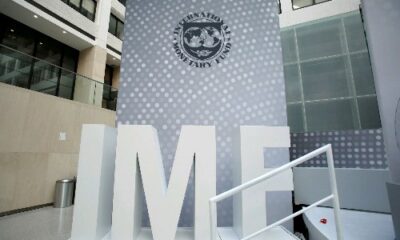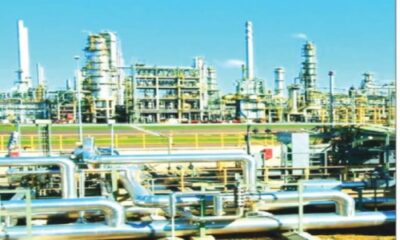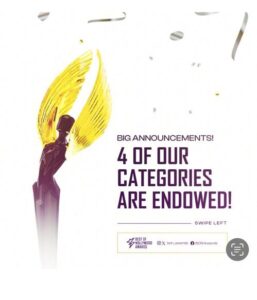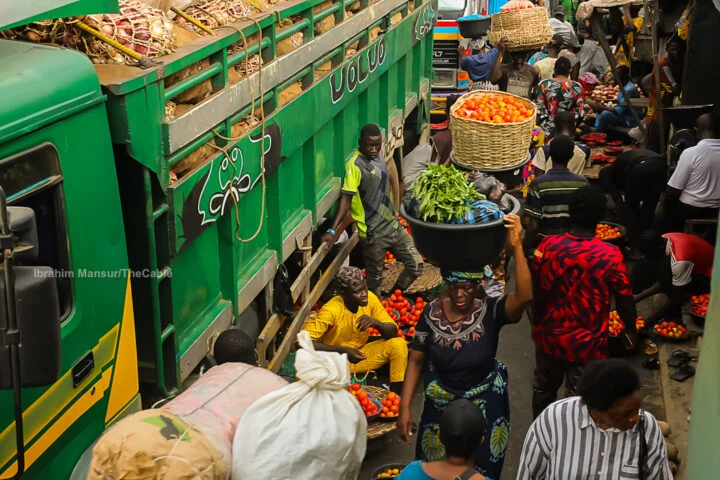The National Bureau of Statistics (NBS) reports that Nigeria’s inflation rate reached 33.88 percent in October, up from 32.7 percent in September.
This data is outlined in the NBS’ latest consumer price index (CPI) report for October, published on Friday.
The CPI tracks the rate of change in the prices of goods and services.
According to the NBS, the headline inflation rate in October increased by “1.18% points when compared to the September 2024 headline inflation rate.”
“On a year-on-year basis, the Headline inflation rate was 6.55% points higher than the rate recorded in October 2023 (27.33%),” the NBS stated.
“This indicates that the Headline inflation rate (on a year-on-year basis) increased in October 2024 compared to the same month in the previous year (i.e., October 2023).”
“Additionally, on a month-on-month basis, the headline inflation rate in October 2024 was 2.64%, which was 0.12% higher than the rate recorded in September 2024 (2.52%).”
“This means that in October 2024, the rate of increase in the average price level was higher than the rate of increase in the average price level in September 2024.”
- ‘INCREASE IN RICE, YAM PUSHED FOOD INFLATION RATE TO 39.16%’
The NBS also revealed that the food inflation rate in October soared to 39.16 percent, up from 33.77 percent in September.
On a year-on-year basis, the food inflation rate was 7.64 percent higher compared to the rate recorded in October 2023 (31.52 percent).
“The rise in food inflation on a year-on-year basis was driven by increases in prices of items such as guinea corn, rice, maize grains, etc. (Bread and Cereals Class), Yam, Water Yam, Coco Yam, etc. (Potatoes, Yam & Other Tubers Class), Palm Oil, Vegetable Oil, etc. (Oil and Fats Class), and Milo Lipton, Bourvita, etc. (Coffee, Tea & Cocoa Class),” the bureau explained.
The report also highlighted that the month-on-month food inflation rate in October was 2.94 percent, showing an increase of 0.3 percent compared to the 2.64 percent recorded in September.
“The rise can be attributed to the rate of increase in the average prices of Palm Oil, Vegetable oil, etc. (Oil & Fats Class), Mudfish, Croaker (Apo), Fresh fish (Obokun), etc. (Fish Class), Dried Beef, Goat Meat, Mutton, Skin meat, etc. (Meat Class), and Bread, Guinea Corn flour, Plantain flour, Rice, etc. (Bread and Cereals Class),” the NBS added.
“The average annual rate of food inflation for the twelve months ending October 2024, compared to the previous twelve-month average, was 38.12%, an 11.79% point increase from the average annual rate of change recorded in October 2023 (26.33%).”
The report also noted that Sokoto state (52.18 percent), Edo (46.55 percent), and Borno (45.85 percent) experienced the highest food inflation in October, while Kwara (31.68 percent), Kogi (33.30 percent), and Rivers (33.87 percent) recorded the slowest increases in food inflation on a year-on-year basis.
In terms of month-on-month food inflation, Adamawa (5.08 percent), Sokoto (4.86 percent), and Yobe (4.34 percent) states had the highest rates.
According to the NBS, states such as Kwara (1.11 percent), Ondo (1.31 percent), and Kogi (1.50 percent) had the slowest rise in food inflation in October 2024.

 BIG STORY2 days ago
BIG STORY2 days ago
 BIG STORY2 days ago
BIG STORY2 days ago
 BIG STORY2 days ago
BIG STORY2 days ago
 BIG STORY2 days ago
BIG STORY2 days ago
 BIG STORY5 days ago
BIG STORY5 days ago
 BIG STORY4 days ago
BIG STORY4 days ago
 BIG STORY4 days ago
BIG STORY4 days ago
 BIG STORY5 days ago
BIG STORY5 days ago































